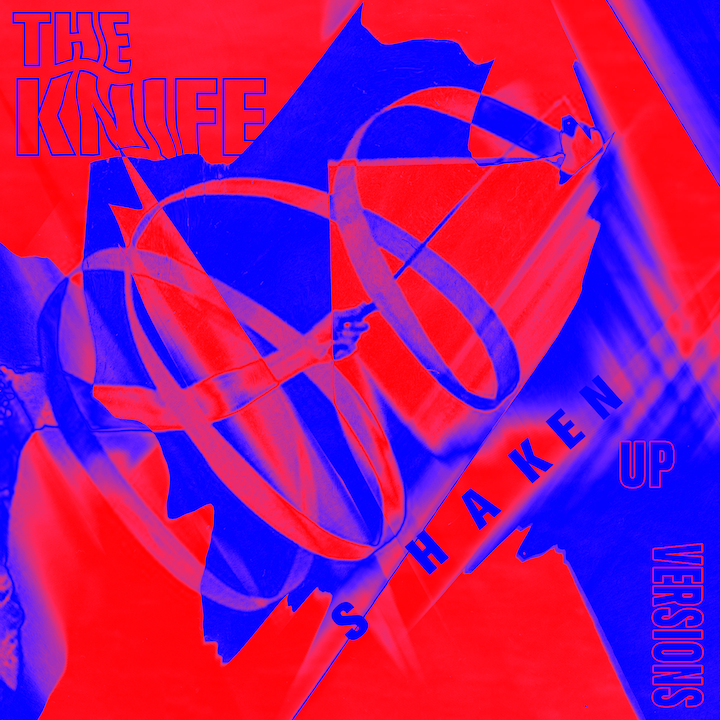
The Knife’s Shaken-Up Versions
The Knife might never have toured or performed live were it not for José González. González’s acoustic cover of his fellow Swedes’ single ‘Heartbeats’ became a minor hit and soon featured on a longrunning international ad campaign for Sony’s Bravia televisions; The Knife used the songwriting royalties from this campaign to finance their first live show and tour (in the wake of their 2006 album Silent Shout). The extra money enabled them to put on a richly visual and immersive show, one with an ominous atmosphere perfectly suited to Silent Shout’s music. Making live electronic music engaging is a difficult task, and The Knife’s Silent Shout tour (documented on the film Silent Shout: An Audio Visual Experience) shows a band committed to breaking the visual cliché of performers standing still behind banks of electronic equipment.
It’s perhaps not surprising, then, that The Knife’s second-ever tour, in support of last year’s excellent album Shaking the Habitual, would further deconstruct the notion of what live electronic music is or should be. The show I caught at Barcelona’s Primavera Sound festival last year opened with a panoply of strange-looking bespoke instruments on the stage, each being played by one of a number of hooded figures. But something wasn’t right—the sound was too crisply perfect, too much like the audio from Shaking the Habitual.
As the show progressed it became apparent that the ‘instruments’ on stage were elaborate props and the ‘players’ were miming their actions; shortly enough the ‘instruments’ were cast aside in favour of a riotous dance performance from the ‘players’. Stranger still, it was by no means clear who amongst the large group was Karin Dreijer Andersson or Olof Dreijer, the two siblings who make up The Knife. The performance was confounding in the best possible way—it took the audience’s expectations for a live show of electronic music and completely up-ended them by being, essentially, a beautifully costumed form of karaoke.
The Knife’s new mini-album, Shaken-Up Versions, seeks to further confound the distinction between the live show and the studio album. It’s not exactly a ‘live’ album, since it was recorded in the studio, but the songs on it formed the basis of the live shows on the Shaking the Habitual tour. All of the songs on it have seen some form of prior release—five on the Knife’s earlier albums, and three on Shaking the Habitual. The former songs have undergone a sonic makeover, bringing them into line with the aesthetic of Shaking the Habitual, while the latter have been slightly tweaked to make them more viscerally appealing in the concert context.
For fans of The Knife, the reinvented songs will hold the most interest and appeal. ‘We Share Our Mothers’ Health’ and ‘Silent Shout’ have been filled up with sonic detail in comparison to the spare, minimalist form they took on Silent Shout; loaded with hand claps, drum fills and shaker rhythms, they lose their sternness and instead become something wild and joyful.
And while Deep Cuts was not without sonic colour, the versions of ‘Got 2 Let U’ and ‘Pass This On’ on Shaken-Up Versions have been beefed up with 90s house rhythms. Their lyrics have also been updated to reflect The Knife’s interest in queer theory, which drove the creation of Shaking the Habitual: the love interest in ‘Pass This On’ is no longer a man but a woman, lusted after both by Dreijer Andersson and guest vocalist Shannon Funchess of Light Asylum, and all of the gender pronouns in ‘Got 2 Let U’ have been replaced by the gender-neutral ‘zie’.
Perhaps the most radical transformation is that of ‘Bird’, one of the gems of the group’s very early work. Where the original was largely focused on instrumentation and lyrics rather than rhythm, the version here clatters along on a fast beat that threatens to collapse on itself at any moment.
One of electronic music’s chief virtues is its near-endless malleability, the way source material can be worked and reworked until it resembles something else entirely. Shaken-Up Versions doesn’t offer definitive or ‘best’ versions of these songs from The Knife’s back catalogue. Instead, it offers something better: a document of their openness, a reminder that nothing in electronic music is ever truly settled.
